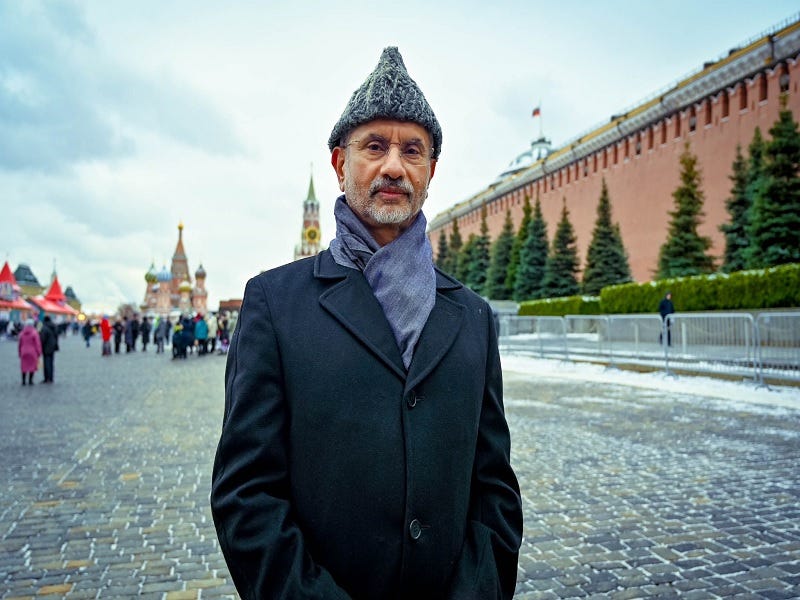The Larger Context Of EAM Jaishankar’s Moscow Trip Reinforces Its Strategic Importance
The reason why he so urgently wanted to travel to Russia before year’s end instead of waiting until after Russian officials return to work in mid-January was arguably because he wanted his visit to be interpreted by the US as an indirect response to them hosting Pakistan’s military chief in early December.
It was earlier predicted that “Bangladesh, Connectivity, And Grand Strategy Will Likely Be On Jaishankar’s Agenda In Moscow”, and while a lot of what he discusses during his trip will likely be kept under wraps per protocol, the External Affairs Minister (EAM) already signaled that it’s shaping up to be a big deal. He tweeted out a pic of himself in Red Square on the day of his arrival together with the pass that he received in 1962 at the age of seven when he first visited for an an event celebrating Soviet cosmonauts.
This was meant to show the world how far back his personal ties with Russia go, which far predate his posting to the Indian Embassy in Moscow from 1979-1981 after joining his country’s Foreign Service. Although he later served as the Indian Ambassador in DC from 2013-2015, Indo-US ties are troubled by the spiraling dispute caused by the Justice Department’s charges that an unnamed Indian official conspired to assassinate a Delhi-designated terrorist-separatist with dual American citizenship on US soil.
Majority-Orthodox Russia celebrates Christmas on the first week of the year but most of its officials usually take the preceding one off ahead of the holidays that annually run from 1-10 January. Those who EAM Jaishankar planned to meet with during his trip understand its strategic importance as India recalibrates its geopolitical balancing act after what the US just did, however, which is why they remained in Moscow to receive him instead of leaving work a week early like most of them usually do.
It's not speculation that this was his intent since he tweeted several hours after his visit to Red Square that he discussed precisely that subject. In his words, “Spoke about the importance of rebalancing and the emergence of multipolarity. Exchanged views on how India-Russia ties will develop in that framework. Also discussed connectivity, multilateralism, big power competition and regional conflicts. Geopolitics and strategic convergence will always keep India-Russia ties on a positive trajectory.”
The reason why he so urgently wanted to travel to Russia before year’s end instead of waiting until after Russian officials return to work in mid-January was arguably because he wanted his visit to be interpreted by the US as an indirect response to them hosting Pakistan’s military chief in early December. Asim Munir met all top US officials apart from the President and Vice President, which India would have interpreted as the full-fledged resumption of Pakistani-US ties right as Indo-US ties became troubled.
To make Munir’s feting even more insulting from India’s perspective, it occurred amidst Pakistan’s de facto imposition of martial law since May, which American media largely turned a blind eye to while nowadays hyping up incomparably more democratic India’s alleged “authoritarian trends”. It was therefore imperative for India to send a strong but still diplomatic response to the US after this spree of slights, ergo why EAM Jaishankar prioritized flying out to Moscow as soon as possible.
The larger context of his trip reinforces its strategic importance and answers the previously unaddressed question of why he visited at this particular time when most Russian officials usually leave work a week early instead of dropping by in mid-January after they return from their extended holiday break ends. India is clearly recalibrating its geopolitical balancing act in light of newfound troubles with the US, which Delhi predicts will toxify their ties over the next year, hence why EAM’s Jaishankar’s travels couldn’t wait.


